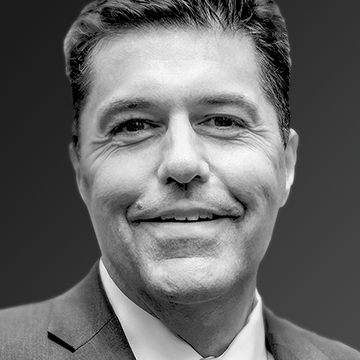Imagine getting real-time feedback on how key opinion leaders (KOLs) would engage with your disease state through a case study. A Twittorial let’s you do just that. A Twittorial is an advisory board using Twitter as the platform to facilitate the dialogue. Contracted KOL participants are provided with a case study. We recommend beginning with a patient case study to facilitate a robust discussion. After viewing the case study, KOLs are asked, “How would you respond?” The participants then tweet their responses in a private, closed chat.
In a case study about COPD discussed below, the Twittorial series educated on admission, discharge, and transfer (ADT), onset of action, and eosinophil subgroup analysis in a live thread.
As background, the impetus for the Twittorial idea was actually a client–an active Twitter user who engaged heavily with fellow cardiology followers/followees via social media. The question he posed to us was: “How can I leverage social media to gather insights and also connect with my customers?” To answer this question we birthed the Twittorial.
How the Twittorial works:
- KOLs are given a case study and asked how they would respond
- KOLs tweet their responses in a private, closed chat
- The moderator then asks follow-up questions to the group
- All tweets are compiled and shared with the group after the session
- A summary of the key insights is also provided to the group
The Twittorial series provides an opportunity for experts to share their insights and opinions on these topics in a live, interactive format.
Key benefits of the Twittorial include:
- Engaging and educating HCPs in new and dynamic ways
- Facilitating open- or closed-forum knowledge transfer
- Promoting recurrent participation due to flexibility and convenience
We wanted to test this pilot program with a few select cardiologists who are equally active on Twitter. Twitter has the capabilities we were looking for in terms of privacy and the ability to moderate with ease. The platform allows for learning, sharing, and communicating in a dynamic environment.
Case study overview:
- Created a first-in-class, moderated Twitter advisory board pilot series used to obtain insights into challenging clinical cases, build awareness of gastric myoelectrical activity (GMA) core strategic focus, and engage KOLs through a unique two-way exchange of information
- Created a memorable experience for the advisors during which they responded not only to the moderator but also to each other, thereby generating a 360 dialogue
- Highly effective with >60 tweet responses garnered within a 24-hour period
Case study key learnings:
- HCPs will share their own content/assets. The first reply to the moderator in response to the case study was a self-written publication
- HCPs find the discussion on the Twitter platform valuable. 100% of those who completed our evaluation said “yes,” the discussion was valuable
- HCPs found the duration of the discussion to be adequate. The duration allowed our advisors to engage at their own convenience, with 100% of participants engaged throughout the 24-hour period
- HCPs want to participate in another Twitter advisory board, in part because this advisory board did not require travel or a large time commitment in one sitting
- HCPs felt encouraged to participate freely. The advisors responded not only to the moderator but also to each other; they shared their opinions freely
The Twittorial series is a unique opportunity for experts to share their insights and engage in a robust dialogue with other professionals. In this case study, participants were able to learn about ADT, onset of action, and eosinophil subgroup analysis. We hope that you found this case study helpful and informative. If you have any questions or would like more information, please don’t hesitate to reach out to us.
by Michelle Wolfson





